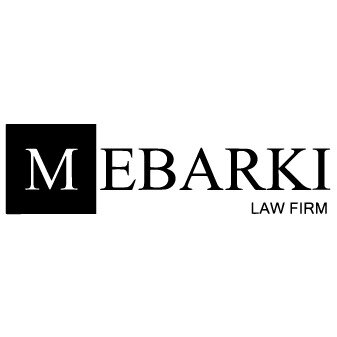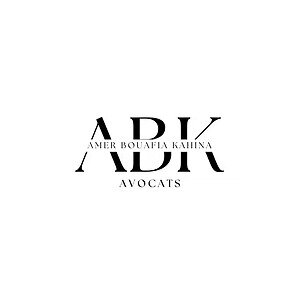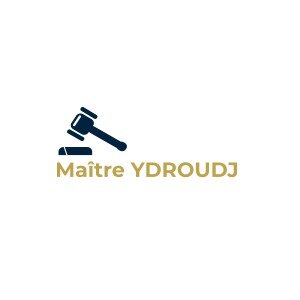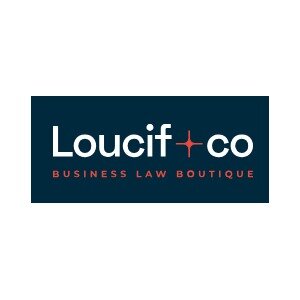Best Corporate & Commercial Lawyers in Algeria
Share your needs with us, get contacted by law firms.
Free. Takes 2 min.
Or refine your search by selecting a city:
List of the best lawyers in Algeria
About Corporate & Commercial Law in Algeria
Corporate and commercial law in Algeria covers the legal rules and regulations that govern how businesses operate, form, contract, and transact within the Algerian market. This area of law deals not just with the formation and management of different types of companies, but also with commercial transactions, sales, employment, competition, and intellectual property. Algeria's corporate and commercial rules are influenced by both local statutes and some elements of French legal tradition. With evolving economic reforms and efforts to attract both local and foreign investment, this field is central to commercial activity in the country.
Why You May Need a Lawyer
Individuals and companies may require a lawyer experienced in corporate and commercial law in Algeria for a variety of reasons, including:
- Starting or registering a new business
- Drafting and negotiating commercial contracts
- Mergers, acquisitions, or restructuring transactions
- Compliance with Algerian regulations
- Resolving shareholder or partnership disputes
- Handling employment matters within a company context
- Protecting intellectual property rights
- Engaging in cross-border investments and trade
- Dealing with government permits or licenses
- Responding to commercial litigation or arbitration
Given Algeria’s specific legal environment and regulatory requirements, professional legal guidance is strongly recommended to avoid costly mistakes and legal exposure.
Local Laws Overview
Algerian corporate and commercial law is primarily based on the Algerian Civil Code and the Commercial Code, along with specific governmental decrees and regulations. Key aspects include:
- The types of business entities allowed, such as SARL (limited liability company), SPA (joint-stock company), and partnerships
- Minimum capital requirements and company formation procedures
- Restrictions on foreign ownership in certain sectors and joint venture requirements
- Local content and partnership requirements for foreign investors
- Mandatory annual filings, recordkeeping, and accounting rules
- Employment and labor laws that impact human resources management
- Commercial contracts must adhere to specific form and content rules
- Competition law and regulations covering monopolies and unfair practices
- Regulations governing cross-border transactions, currency controls, and import-export activities
- Mechanisms for resolving disputes, including local courts and arbitration forums
It is important to be aware that the Algerian government regularly updates its regulatory framework, especially for sectors that are vital to the economy, such as hydrocarbons, telecommunications, and finance.
Frequently Asked Questions
What is the most common type of company for small businesses in Algeria?
The SARL (Société à Responsabilité Limitée) or limited liability company is the most common structure used by small and medium businesses due to its relative simplicity and limited liability protection.
Are there restrictions on foreign investment in Algeria?
Yes, certain sectors are restricted, and foreign investors may be required to enter into joint ventures with Algerian partners, especially in strategic industries. Some percentage of Algerian ownership may be mandated.
What are the minimum capital requirements for company formation?
For an SARL, the minimum capital is 100,000 Algerian Dinars, while for an SPA (joint-stock company), it is 1 million Algerian Dinars. Requirements may vary based on the business activity.
Can a single person create a company in Algeria?
Yes, a single-person limited liability company (Entreprise Unipersonnelle à Responsabilité Limitée or EURL) is permitted under Algerian law.
Is it mandatory to have a physical office in Algeria to start a company?
Yes, a registered office address within Algeria is required for company registration and ongoing legal compliance.
What are the main taxes affecting companies in Algeria?
Companies in Algeria are subject to corporate income tax, value added tax (VAT), and other local taxes such as business activity tax and property tax, depending on the nature of the business.
How are commercial disputes generally resolved?
Commercial disputes may be brought before Algerian courts or resolved by arbitration, especially if agreed to in a contract. Arbitration is increasingly used for cross-border or complex matters.
Can companies freely hire foreign employees?
Employment of foreign workers is allowed but subject to quotas, labor market testing, and work permit requirements. Priority must generally be given to Algerian nationals.
Are commercial contracts enforceable in Algeria?
Yes, as long as the contracts comply with Algerian law and public policy, they are enforceable by local courts. Some legal formalities may be required for validity.
What should foreign investors be aware of before entering the Algerian market?
Foreign investors should understand ownership limitations, regulatory approvals, currency controls, local partnership needs, and sector-specific restrictions. Legal due diligence and local counsel are highly recommended.
Additional Resources
People seeking further information and support can contact the following bodies and organizations in Algeria:
- Ministry of Commerce for company registration and commercial regulations
- National Center of Trade Register (CNRC) for official business registration and data
- Algerian Chamber of Commerce and Industry, which provides commercial guidance and support
- Ministry of Industry and Pharmaceutical Production for sector-specific regulations
- Bar Association of Algeria for legal representation and professional lawyer directories
- Local business incubators and investment agencies for start-up and investment support
Next Steps
If you require legal assistance in corporate and commercial matters in Algeria, consider the following steps:
- Clearly define your legal needs, such as company formation, contract drafting, or dispute resolution
- Gather all necessary documents and information related to your business activity
- Identify and contact a qualified lawyer or law firm with experience in Algerian corporate and commercial law
- Request an initial consultation to discuss your needs, expectations, and possible solutions
- Review engagement terms and fees before proceeding
- Stay updated on local regulatory changes that may affect your business
Working with a knowledgeable legal advisor will help you navigate local requirements, minimize risks, and ensure your business operates compliantly and efficiently in the Algerian market.
Lawzana helps you find the best lawyers and law firms in Algeria through a curated and pre-screened list of qualified legal professionals. Our platform offers rankings and detailed profiles of attorneys and law firms, allowing you to compare based on practice areas, including Corporate & Commercial, experience, and client feedback.
Each profile includes a description of the firm's areas of practice, client reviews, team members and partners, year of establishment, spoken languages, office locations, contact information, social media presence, and any published articles or resources. Most firms on our platform speak English and are experienced in both local and international legal matters.
Get a quote from top-rated law firms in Algeria — quickly, securely, and without unnecessary hassle.
Disclaimer:
The information provided on this page is for general informational purposes only and does not constitute legal advice. While we strive to ensure the accuracy and relevance of the content, legal information may change over time, and interpretations of the law can vary. You should always consult with a qualified legal professional for advice specific to your situation.
We disclaim all liability for actions taken or not taken based on the content of this page. If you believe any information is incorrect or outdated, please contact us, and we will review and update it where appropriate.
Browse corporate & commercial law firms by service in Algeria
Algeria Attorneys in related practice areas.
Browse corporate & commercial law firms by city in Algeria
Refine your search by selecting a city.












